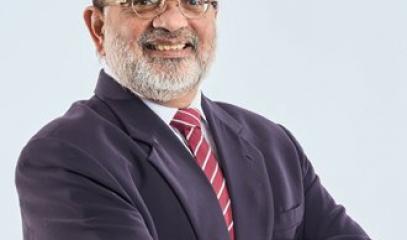Hindu rituals, attacks by Islamic radicals and Malaysia's fragile mosaic between faiths
A gesture by a car dealership saleswoman mirrors a society divided between tolerance and fundamentalism. Internet users divided between those who appreciate the acceptance of the Hindu blessing and those who attack her for committing a grave sin for a Muslim. The case of the team consisting of a Hindu surgeon, a Buddhist anaesthetist and Muslim nurses who operated on a Catholic priest.
Kuala Lumpur (AsiaNews) - The controversy that erupted around the employee of a car dealership has become the symbol of the clash between those who seek to promote confessional harmony and those who, on the contrary, claim the Muslim (Malay) identity as exclusive in the country .
The protagonist of the story is Nazirah Hassan, who at the time of the sale carries out acts, gestures and rituals aimed at promoting confessional harmony and enhancing all the components of a nation, Malaysia, made up of different cultures and faiths.
The latest case concerns the sale of a car to a Hindu buyer, with whom he performed a blessing ritual which, having gone viral online, aroused mixed feelings among Internet users and attracted criticism from the radical Islamic wing.
In particular, Nazirah published a video on X (formerly Twitter) in which she is seen helping the Hindu buyer to perform a "pooja" (ritual) as is customary among non-Muslims. The woman also delivers a tray with a coconut and lime which, in Hindu tradition, is placed under each wheel to chase away negative energy.
After opening a coconut and reciting a prayer, the owners of the car perform some Hindu rituals. Nazirah says that for years she has been committed to this act of "goodwill" to assist her non-Muslim clients, including Chinese Taoists to whom she offers pineapples with the crown intact as a good luck charm.
Her video, which has garnered over 2.6 million views, attracted the interest of local media, which praised her good intentions. “I did it – she declared in an interview – out of respect for people of different faiths. It seemed like the right thing to do in our multicultural society."
However, Nazirah's gesture of friendship and interreligious harmony was not appreciated by some fellow Malay-Muslim citizens, while others, while criticizing, gave her the benefit of good faith and still others praised her for her interreligious affability.
A Muslim inmate said: “Many of us Malaysians are like Nazirah, serving without religious or racial prejudice. It is politicians and religious bigots who use ethnic and sectarian issues, to segregate multiracial Malaysians, based on their needs, whims and fantasies, just for political survival. It is common for Muslim politicians in Malaysia to use race and religion to gain support from Islamic voters."
On the other hand, other Malaysian citizens, the predominant ethnic group in the country, known for their bigoted approach to matters of faith and worship, accused Nazirah of engaging in polytheistic practices and invited her to repent for the sins committed.
“You have crossed the line” accuses a Muslim online. “Islam - he continues - teaches us to respect each other's religion, but never to take an active part in these rituals. You have committed the sin of syirik. You must repent!”. Another adds: “Syrik is a serious sin in Islam. If you didn't know it before, now you should know it's wrong."
Malaysia was born as an independent state in 1957. Today the Malay ethnic group represents almost 70% of the population and is made up entirely of Muslim faithful. The Chinese ethnic group comprises 22.8% of the population, while the Indian one represents only 6.6%. Racial and religious polarization have plagued the nation over time, greatly shaping the country's electoral politics.
According to Tunku Mohar Mokhtar of the International Islamic University Malaysia, “the Malay-nationalist opposition coalition Perikatan Nasional, which includes the hardline Islamic party Pas, portrays the current government as anti-Islamic and anti-patriotic.” It also defines the Malay ethnic majority "as a community in danger". Special privileges enshrined in the Constitution grant Malays business licenses, scholarships and jobs in the public sector and civil service, but opposition politicians say these privileges could be taken away.
On January 20, Venugopal Balchand, a surgeon, sent a message via WhatsApp that went viral: “I just finished performing a high-risk triple bypass operation on a Catholic priest. The two surgeons were Hindus. The anesthetist was Buddhist. Three nurses were Muslim and one was Sikh.
The entire parish prayed for both, the reverend father and the surgical team. This is the real Malaysia, and if this can happen during an illness, it certainly can happen on any other ordinary day.” Crucified for her interconfessional dynamics, Nazirah wears a crown of thorns while the Hindu surgeon and his team responded amicably to the Gospel question: "Who is your neighbor?" Both Nazirah and the Hindu doctor deserve a standing ovation.
26/08/2021 16:43





.jpeg)


.png)










